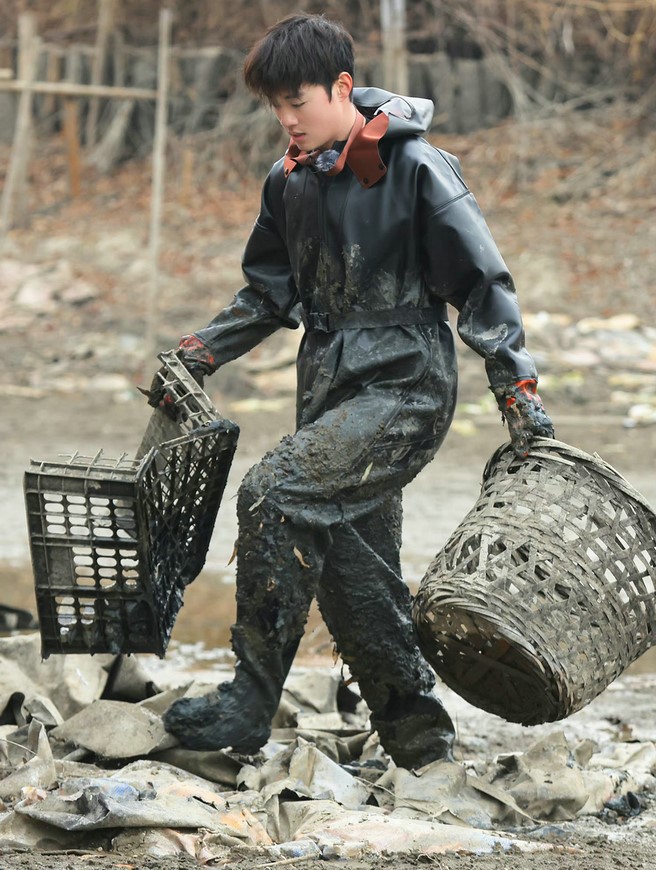A growing number of Chinese viewers are captivated by the daily activities on a farm in Hangzhou, Zhejiang province, where “Become a Farmer Season 2” is being filmed
(ANN/THE CHINA DAILY) – The hit farming-focused reality show features 10 relatively unknown Gen-Z male artists, including musicians and actors, who were selected from a pool of over 200 applicants in 2022, offering a unique perspective on farming life through the eyes of these young talents.
In mid-April, a media tour saw dozens of journalists visiting 58 Houdoumen in Sanlian village, Sandun township of Xihu district. This is where the 10 young men featured on “Become a Farmer Season 2” farm.
Located about half an hour’s drive from downtown Hangzhou, the village was a picturesque sight, with balmy spring weather enhancing the beauty of the surroundings.
The fields were adorned with golden rapeseed flowers in full bloom, while the wheat fields displayed a vibrant green hue. In the garden, foxgloves blossomed, and inside the greenhouse, kale and strawberries thrived.
Honeybees buzzed around the area, and rabbits relaxed in their cozy cages. The entire scene was bursting with life, creating an intoxicating atmosphere for all who visited.
The 10 inexperienced farmers, born between 1995 and 2004, may strike the audience as unlikely candidates for farming.

However, they embarked on a challenging 190-day journey to manage nearly 10 hectares of fields, dealing with unpredictable weather, rundown houses, and unruly animals in their quest to turn a profit.
When the show, the first of its kind in the country, was initially introduced, it was met with skepticism, seen as a mere attention-seeking stunt.
However, it quickly proved audiences wrong by showcasing the determination and hard work of these young individuals as they took on the demanding role of farmers.
Through 50 slow-paced, documentary-style episodes, along with numerous live streams and vlogs, the show captured the journey of these young men as they tackled tasks such as ploughing, digging ditches, sowing seeds, fertilising, building greenhouses, renovating their living quarters, and more.
It provided viewers with a panoramic view of Chinese farmers’ lives and offered an in-depth look at the intricacies of modern agricultural work.
A fruitful attempt
A black horse in China’s cut-throat variety show market, the show’s Season 1 hoovered up a series of honours, including a nomination for Best Variety Show at the 28th Shanghai TV Festival Magnolia Awards. On Douban, China’s answer to IMDb, its rating rose to a staggering 9.0 out of 10.
Many audience members, especially young urbanites who are too far away from their ancestral villages and their associated lifestyles, call it a sincere production that reveals the hardships of farming and offers a glimpse into the status quo of China’s agricultural industry.
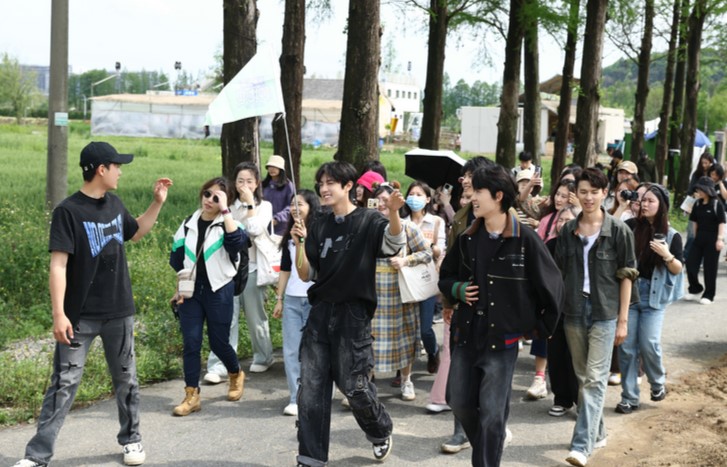
Many more viewers, especially those navigating uncertainties in life and battling anxiety and pressure at school and work, find the show or farming itself therapeutic.
“The land doesn’t lie to you. That’s what I feel strongly about farming,” said 24-year-old He Haonan, one of the 10 youths.
“Here on the farm, if we carefully tend to the seeds that we have planted, they will sprout, flower, and then bear fruit after a while. The feedback from the land, which is palpable, can bring you a sense of fulfillment. I guess that is why many people find that there is a healing power to our show,” he told reporters during a group interview.
Aside from reaffirming the truth of the adage “As you sow, so shall you reap,” the show has created a utopia in which the 10 young men work close to nature, support each other, and naturally develop genuine camaraderie.
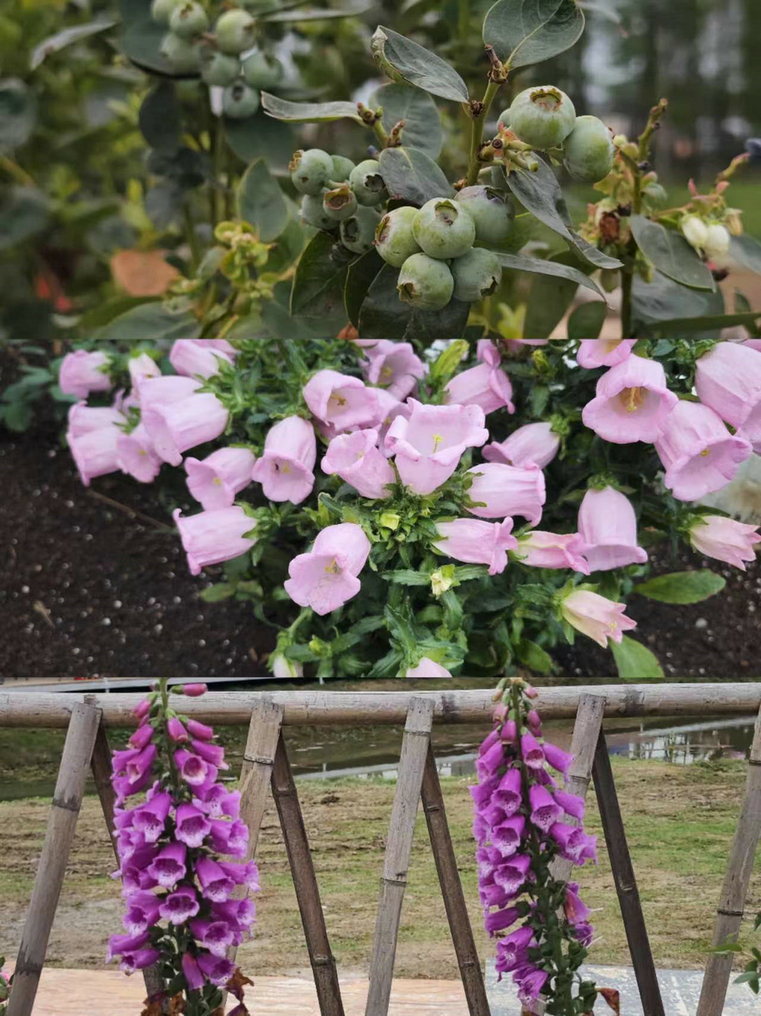
In the middle of Season 1, they established a boy’s group, Shigeqintian (literally 10 hard-working days) and an agricultural company with the same name.
The utopia on the small screen echoes a longing for nature and friendship among its audiences, who commonly lack socialising in their busy urban lives. They call the participants “my dear digital friends” in real-time comments that appear on the screen.
Not only is Become a Farmer commended for its immense emotional value but it is also hailed for raising public awareness about the country’s agriculture and farmers’ livelihoods.
Ensuring food security has remained one of the country’s top priorities because China, which produces about a quarter of the world’s food and feeds more than one-fifth of our planet’s population, has less than nine per cent of Earth’s cultivatable land.
“I hope this show will let more people understand the value of farming and the hardships of farmers and hence grow willing to pay good prices for quality agricultural products,” Zhu Yi, an associate professor at China Agricultural University, wrote in a Weibo post on Feb 23.
From artists to agri-preneurs
In Become a Farmer Season 2, the 10 youths aspire to make their farming venture bigger and stronger.
Their ambition is primarily thanks to the skills and technologies they acquired on study tours to advanced agricultural bases in the provinces of Shandong, Hebei, Henan, and Shanxi, as well as the Inner Mongolia autonomous region, after the completion of Season 1.
The size of their farm tripled to 30 hectares. In addition to wheat and roses, which they grew last year, the young men added cash crops, including kale, rapeseed, tulips, chilli peppers, and strawberries. They expanded the fishpond and cultivated a crayfish farm.
Even though the harvest season has yet to come in mid-April, the Houdoumen youths were busy with their plans.
For example, Wang Yiheng, 20, the youngest of the 10, said he had spent several days in the kitchen experimenting with the flavours of crayfish dishes as he planned to turn the to-be-harvested crayfish into pre-cooked products.
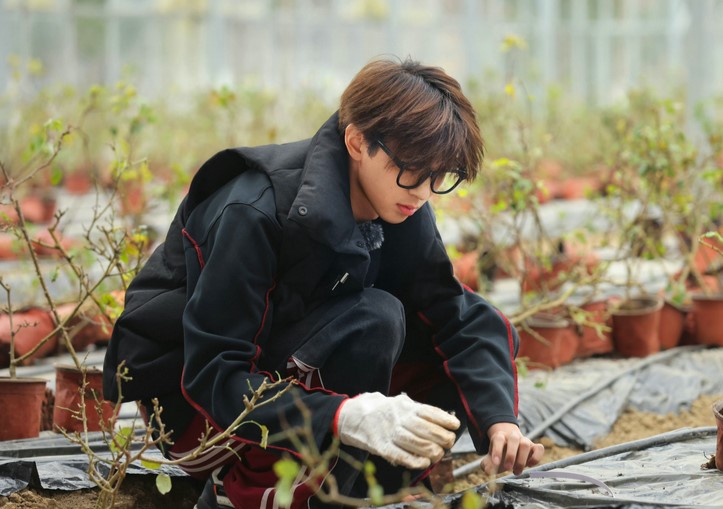
Lu Zhuo was studying rose pastry recipes and wanted to develop one that was different from those on the market. Chen Shaoxi was researching how to sell the fish properly.
Zhuo Yuan was ready to harvest and process strawberries into various strawberry products. Zhao Xiaotong was considering turning the already ripe kale into freeze-dried kelp powder.
“Season 1 was mostly about how they familiarised themselves with the fields, which they may have learned bits and pieces from their parents, grandparents, books, films or TV series, just as most of today’s young people,” Yang, told reporters during the group interview.
“Even though each of us has encountered various difficulties when we run our farm business, we aim to handle them as real entrepreneurs do,” said Jiang Dunhao, 29, the oldest of the 10 participants.
Jiang had just harvested gallons of raw honey from the Italian bees he keeps and was ready to have it evaluated by a food testing laboratory before it was sold.
However, because of the show’s ballooning popularity and the farm’s still limited production, whatever they have produced so far—roses, tulips, lettuce, and rice—all sold out like hotcakes, barely enough to satisfy the demand of devoted fans.
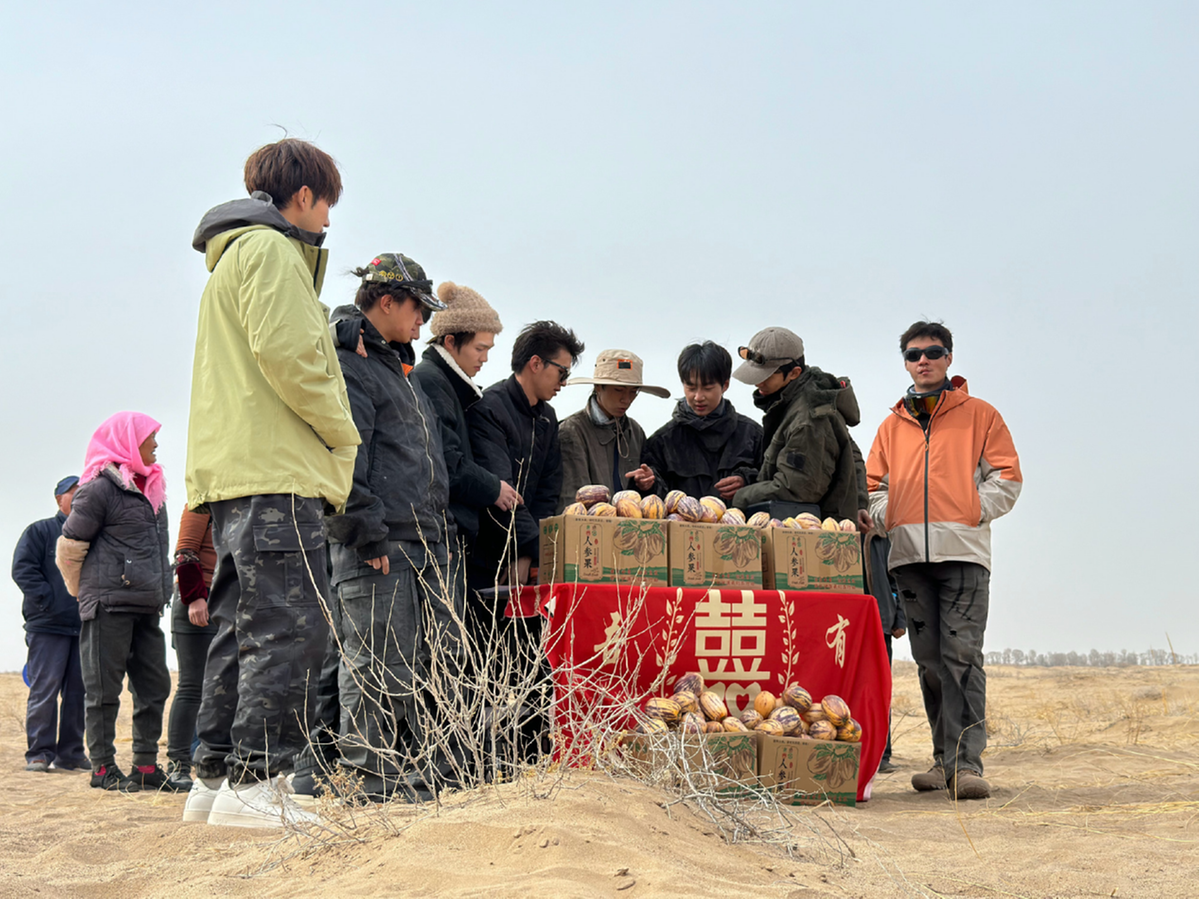
On Thursday noon, a few minutes after the farm published its recent commodity—a pack of 500-gram rice featuring an illustration by Zhao Xiaotong—on its store on the micro-blogging platform Sina Weibo, more than 26,000 packages were snapped up.
Without simply reaping and resting on increasing laurels and sponsorship advertising, producers and participants have already channeled the show’s popularity into sharing prosperity with more of the country’s farmers.
“In the new season, we have the same hard-working spirit, but we have gained a sense of responsibility and mission as new farmers,” said Zhao Yibo, one of the 10 farming youths.
“Last year, we only sold things from our farm, but this year, we also want to leverage our current influence to help promote the development of villages and farmers,” he added.
“The goal that we want to achieve most and will work hard toward is to make more people pay attention to agriculture and help farmers live a better life,” said Wu Han, producer of the show.
